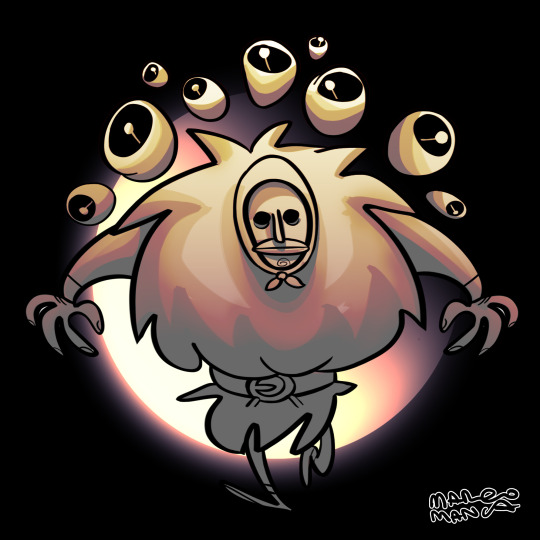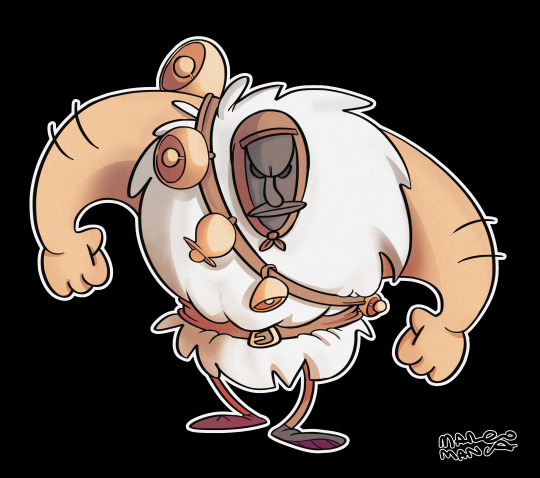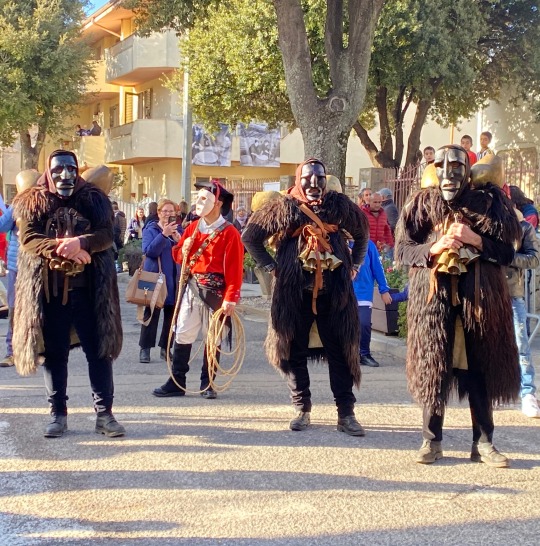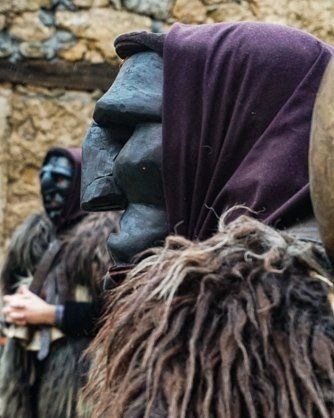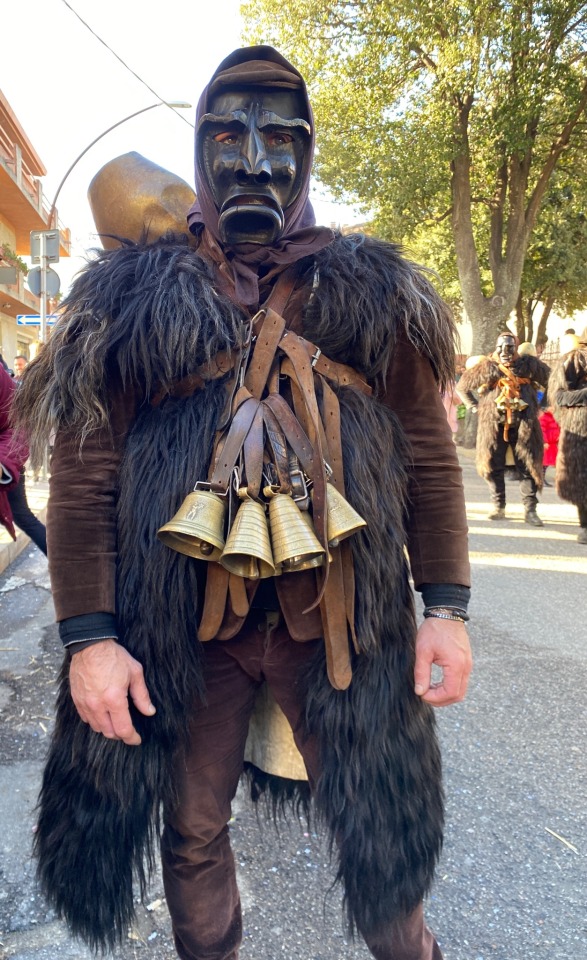#mamuthones
Text
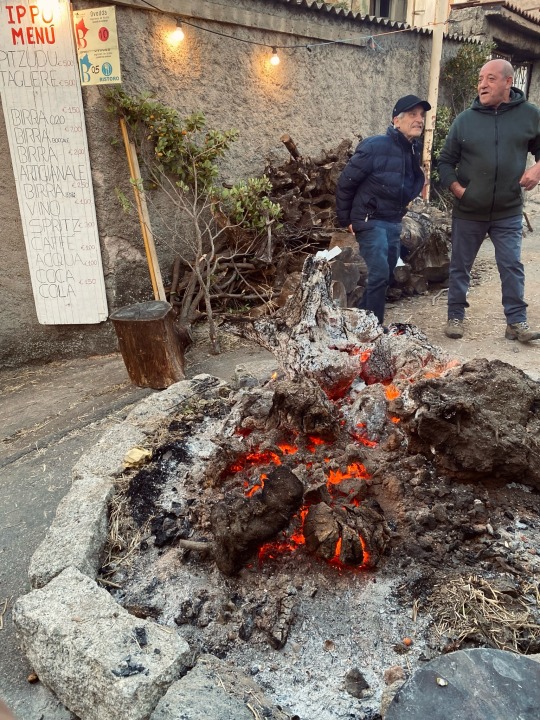
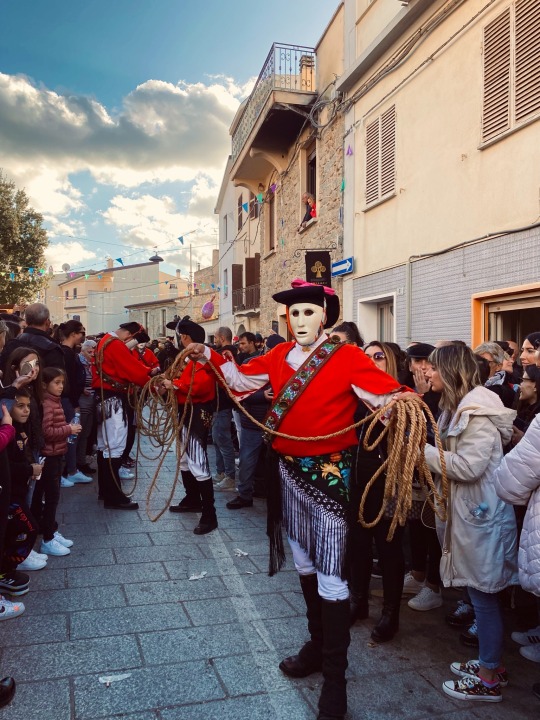
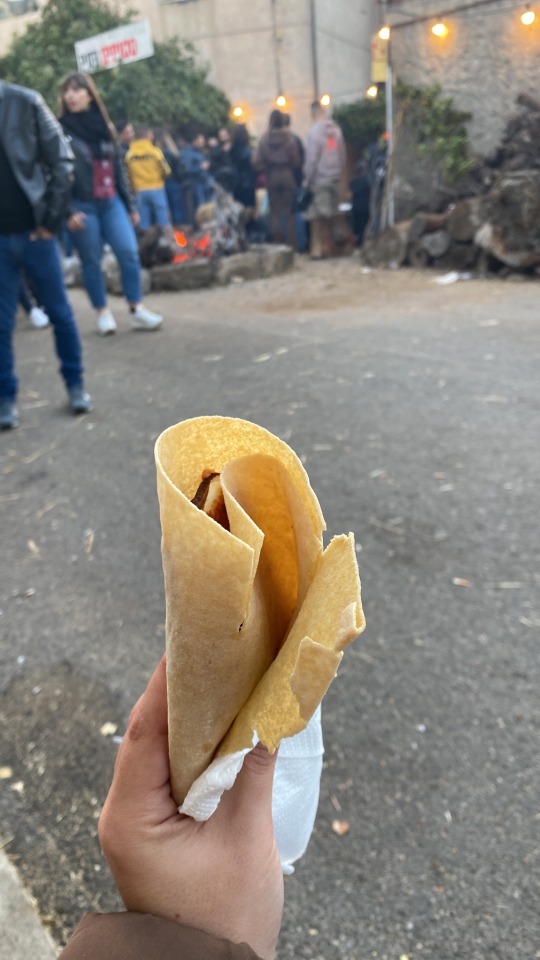
Tradizioni
📍 Mamoiada e Ovodda, Sardegna
#tradizioni#Sardegna#sardinia#autunno#autunno in Barbagia#Barbagia#mamuthones#maschere#traditionalism#foto#maschere sarde#costumi tipici#autumn#photogram#photooftheday#my photos#photoart#traditional photography#costumi sardi#cibo#ospitalità#paesaggi#sagre#paese#sagre di paese#festa#fotografando#colori#musica#vinorosso
4 notes
·
View notes
Video
youtube
Every Year, Men Turn Into Monsters for This Ancient Pagan Ritual | Short Film Showcase
Each year in Sardinia, Italy, men from the small village of Mamoiada don grotesque wooden masks and vests of black sheepskin. Stomping and grunting through the streets, they are weighed down by huge cowbells hung from their backs to scare away evil spirits. These hideous beasts are known as Mamuthones and they are part of an ancient tradition that has existed for thousands of years. Little is known about the origins of this pagan ritual, and its legacy continues to be shrouded in secrecy by the villagers. In this film from Andrea Pecora, get a rare look at the Mamuthones as they make their way through the village to usher in the spring.
3 notes
·
View notes
Link
🎬 Argomento spinoso, uno di quei problemi che sussurrano nell'ombra del cinema sardo. C'è un problema con la filmografia sarda, anzi, ho io ho un problema con la filmografia sarda, cosa succede? La filmografia sarda, spesso finanziata da enti pubblici, ha introdotto elementi tradizionali come i Mamuthones e la lingua sarda nelle produzioni recenti. Tuttavia, la questione critica sta emergendo a causa dell'artificialità di queste inserzioni. La mancanza di autenticità nei dialoghi e nelle performance linguistiche sta diventando un punto di critica sempre più rilevante. 🤔 📽️🤨
TRASCRIZIONE [ENG translation below]
C'è un problema con la filmografia sarda, anzi, ho io ho un problema con la filmografia sarda, cosa succede?
Allora? La Sardegna è un'isola molto particolare, perché non ci sentiamo italiani, siamo stati più spagnoli che italiani, infatti adesso non mi ricordo ma è solo dalla fine del 1800 che noi siamo italiani, ma siamo stati spagnoli per tre secoli, quindi non ci sentiamo italiani come sardi.
È un po come la Corsica e la Francia che è la Corsica, appartiene alla Francia geograficamente, anzi no, politicamente però è gente diversa, i corsi sono persone diverse. Ecco, noi sardi siamo persone diverse dagli italiani, se avete mai fatto un giro in Sardegna ve ne rendete conto perché non c'è nessun senso di italianità per noi gli italiani sono continentali, abbiamo la nostra lingua, abbiamo lottato tantissimo per averla, infatti fino agli anni 80 era vietato, e perseguibile, l'uso del sardo negli affari pubblici una legge che è stata ripresa dal fascismo perpetuata eccetera solo fino alla fine agli anni 80 che è stato detto che non era più reato usare il sardo per gli atti pubblici, io lo racconto sempre quando io mi iscrissi al primo anno all'università uno di quelli che si stava laureando, per fare un atto politico fece la tesi in sardo perché sapeva che non era permesso, per cui fece, mi pare, una notte in prigione, comunque lo arrestarono, ma lo fece per spolverare sollevare un polverone perché erano gli anni della militanza.
Allora perché ho un problema col cinema sardo? Perché è vero che la Sardegna è un posto bello, ancestrale, magico eccetera eccetera, però ultimamente le persone che fanno film e che riescono a raccattarsi il finanziamento pubblico dei vari enti sardi che danno soldi per fare i film, devono sempre metterci in mezzo i Mamuthones, che sono queste maschere tradizionali, e poi la lingua sarda, che ci sta, il problema è che fanno pronunciare improbabilissime frasi in sardo a persone che il sardo non lo parlano, e si sente che sono attori che recitano in sardo ma che non hanno la naturalità e la dimestichezza con la lingua, e poi con questi dialoghi... Qualche giorno fa ho visto appunto uno di questi film dove c'erano dei ragazzini, boh che avranno avuto dieci dodici anni, e uno diceva all'altro "raggiungiamo la cima del monte". Ecco, ora voi ditemi quand'è che avete sentito un ragazzino di dodici anni dire "raggiungiamo la cima del monte" - Dai, sceneggiatori! Questi dialoghi!
TRANSLATION
There is a problem with the Sardinian filmography, or rather, I have a problem with the Sardinian filmography, what is going on?
Well, Sardinia is a very special island, because we don't feel Italian, we have been more Spanish than Italian, in fact now I don't remember but it's only since the late 1800s that we have been Italian, but we have been Spanish for three centuries, so we don't feel Italian as Sardinians.
It's kind of like Corsica and France being Corsica, it belongs to France geographically, actually no, politically however it's different people, the Corsicans are different people. That's it, we Sardinians are different people from Italians, if you have ever taken a tour in Sardinia you realise this because there is no sense of Italianity, for us Italians are 'continental', we have our own language, we have fought so much to have it, in fact until the 80's it was forbidden, and prosecutable, to use Sardinian in public affairs a law that was taken over by fascism perpetuated etc. only until the end of the 80's that it was said that it was no longer a crime to use Sardinian for public acts, I always tell this story: when I enrolled in the first year at the university one of the ones who was graduating, to do a political act he did his thesis in Sardinian because he knew it was not allowed, so he did, I think, a night in jail, anyway they arrested him, but he did it to make a fuss because they were the years of militancy.
So why do I have a problem with Sardinian cinema? Because it's true that Sardinia is a beautiful place, ancestral, magical and so on and so forth, but lately the people who make films and who manage to collect public funding from the various Sardinian entities that give money to make films, they always have to put in the Mamuthones, which are these traditional masks, and then the Sardinian language, which is ok, the problem is that they make people who don't speak Sardinian speak Sardinian pronouncing very improbable phrases, and you can hear that they are actors who are acting in Sardinian but they don't have the naturalness and familiarity with the language, and then with these dialogues... A few days ago I saw actually one of these movies where there were some kids, who must have been ten twelve years old or so, and one was saying to the other "let's reach the summit of the mountain." Here, now you tell me when did you hear a twelve-year-old boy say "let's reach the summit of the mountain" - Come on, screenwriters ! These dialogues!
#3minutigrezzi#autenticitàcinematografica#belpodcastitaliano#cinemasardo#cinemasardocritico#cinemasardoproblemi#criticacinematografica#culturasarda#filmografiasarda#linguasarda#mamuthones#podcastitaliano#sardegna#sardegnacinematografica
0 notes
Photo

Come si chiama nel tuo Dialetto? Tutto ha inizio da questo primo taglio . Dalle mie parti la chiamiamo ‘mezzoba‘ ed è il tipico vassoio di sughero Sardo che potrete trovare nelle tavole imbandite delle case private oppure nei ristoranti tipici ( per norme HACCP non si possono usare) Io personalmente amo il fascino delle tradizioni. #sughero #cork #madeinitaly #handmade #corcho #sardegna #pirografia #natale #kork #mamuthones #presepe #culurgiones #boesemerdulesdeotzana #gufimalefici #caprette #presepenapoletano #fantasyworld #festesarde #cinghiali #sardegnastyle #orologidaparete #pavoncella #popart #colori #sardegnaontheroad #vhlart #shardana #magnetifrigo #pecorelle #sardinjons https://www.instagram.com/p/CilB2gNDqIs/?igshid=NGJjMDIxMWI=
#sughero#cork#madeinitaly#handmade#corcho#sardegna#pirografia#natale#kork#mamuthones#presepe#culurgiones#boesemerdulesdeotzana#gufimalefici#caprette#presepenapoletano#fantasyworld#festesarde#cinghiali#sardegnastyle#orologidaparete#pavoncella#popart#colori#sardegnaontheroad#vhlart#shardana#magnetifrigo#pecorelle#sardinjons
0 notes
Text
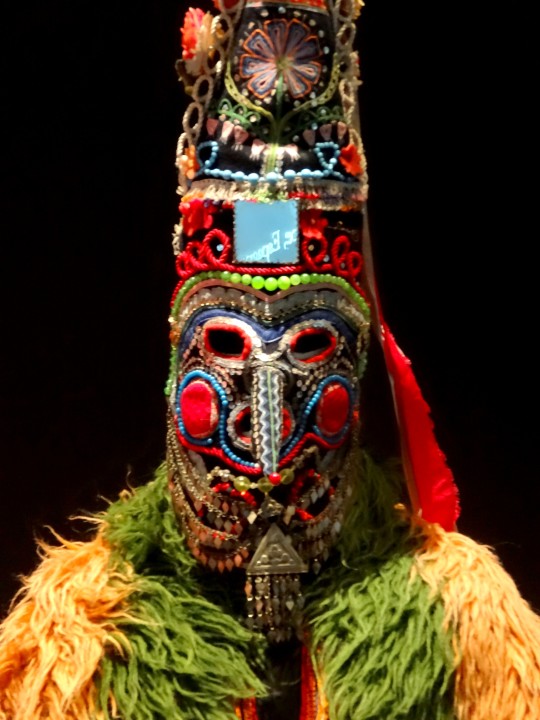
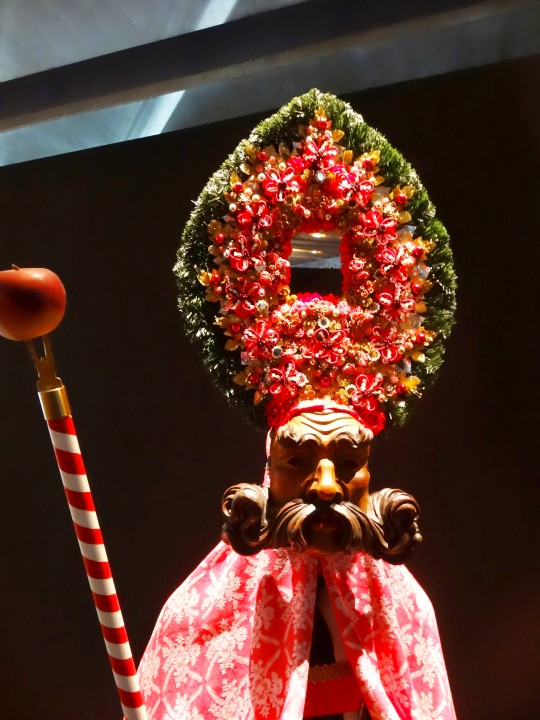
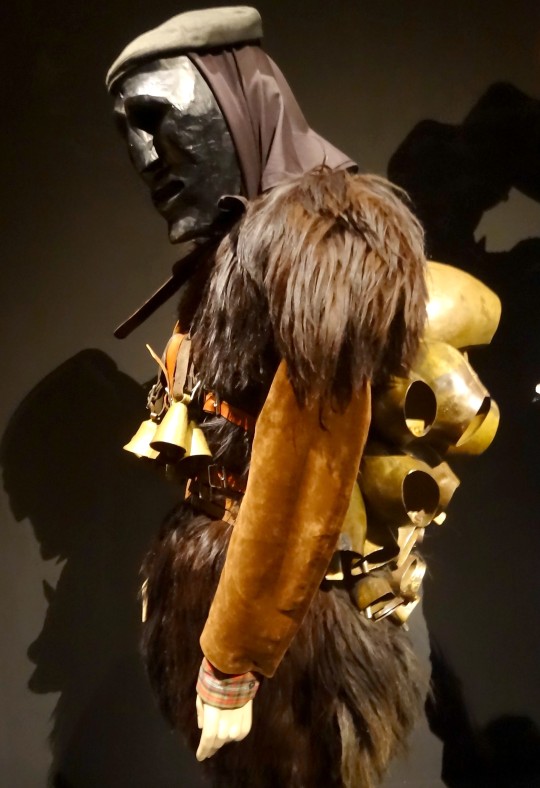
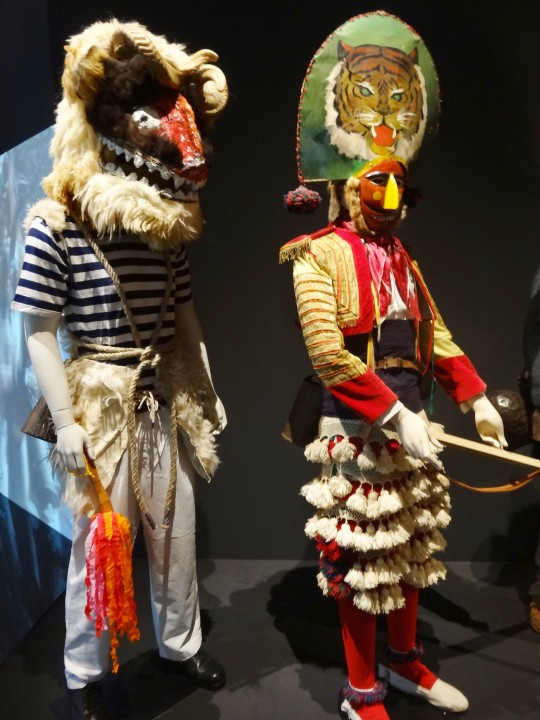
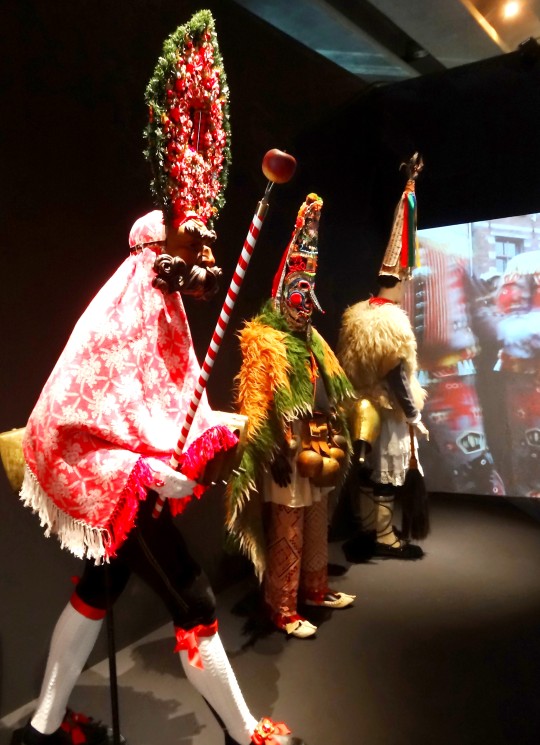
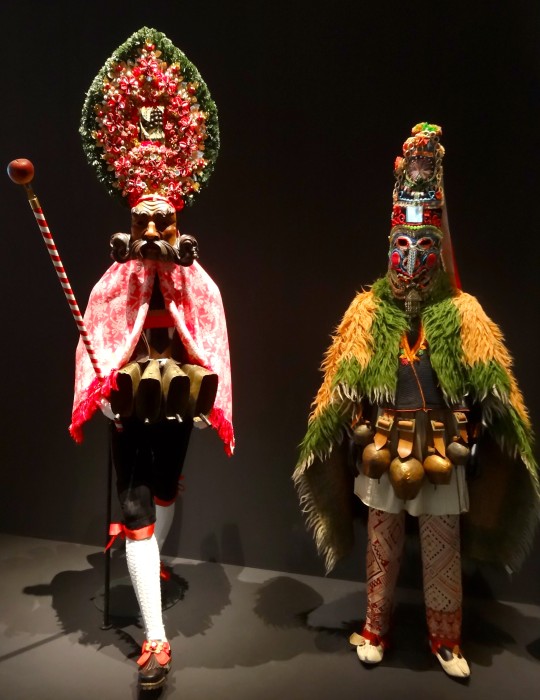
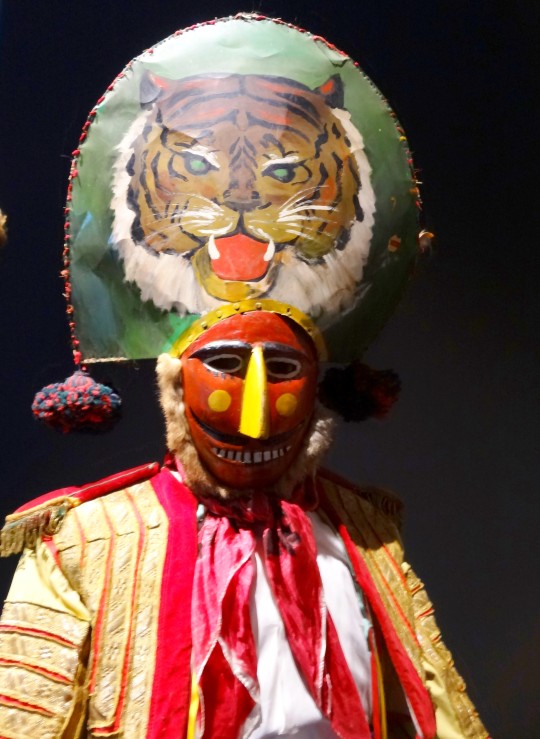
Carnaval !
Une assez longue série sur une expo du MuCEM, à Marseille : "le monde à l'Envers"
kuker (Bulgarie)
scheller (Tyrol)
mamuthone (Sardaigne)
zvončar (Croatie) + Cigarròn (Galice)
scheller (Tyrol) + kuker (Bulgarie) + joalduna (Pays Basque)
scheller (Tyrol) + kuker (Bulgarie)
cigarròn (Galice)
#carnaval#masque#déguisement#MuCEM#marseille#le monde à l'envers#kuker#bulgarie#scheller#tyrol#autriche#mamuthone#sardaigne#italie#zvoncar#croatie#cigarron#galice#espagne#joalduna#pays basque#sonnailles
3 notes
·
View notes
Text
marza lore growing when i think she'd have the su crappolu mamuthones mask. considering that despite the differences re: the development of the town, she'd still respect the castiadores enough to want to give her own mask to altea at some point (the daughter of one of the sisters that like ran away years ago) because altea is Made to be a leader... a guardian... she gifts her this mask and then finds out altea, being a woods craftsmaker or however its called, already tried making it 2 times
mask in question:
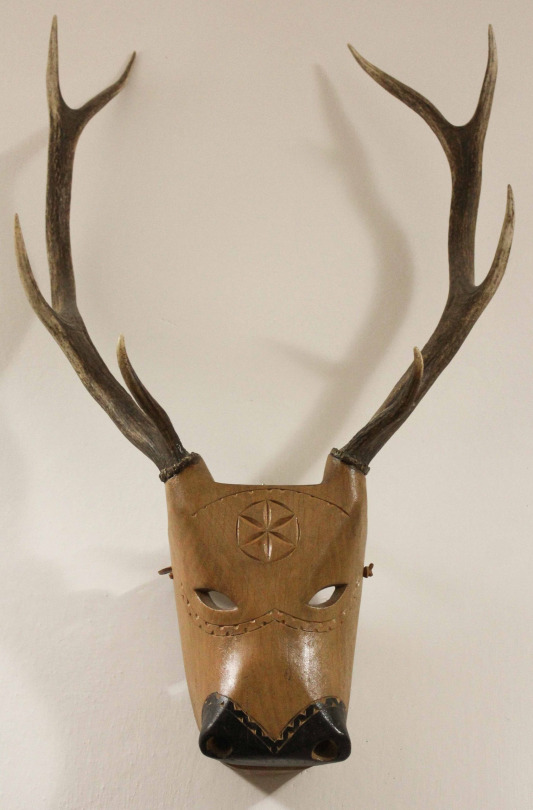
#my dream is going to sardinia during carnival to see mamuthones#it has gotta be an experience#i went to a museum about masks in mamoiada like what 3 years ago now... i still have photos#such a unique tradition that even though several european places never like#communicated with each other#spain sardinia croatia serbia etc. they all have a similar way to celebrate carnivals#deeply founded in paganism and using masks and costumes to ward off evil spirits#so cool#oc rambles
0 notes
Text
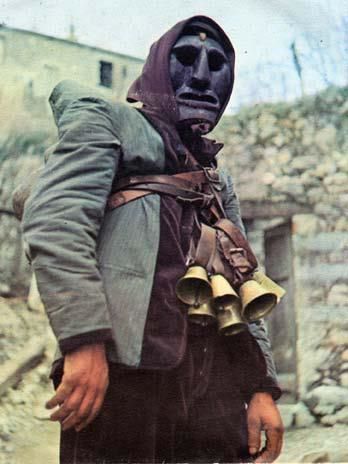
Mamuthone from the carnival of Mamoiada in Sardinia
1K notes
·
View notes
Text
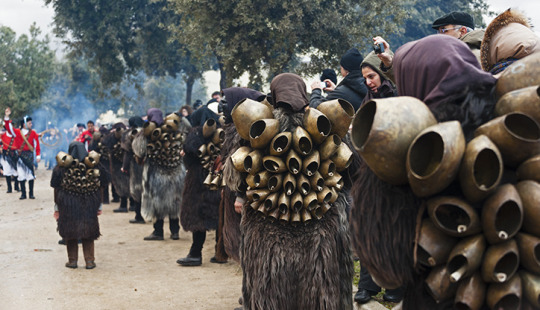
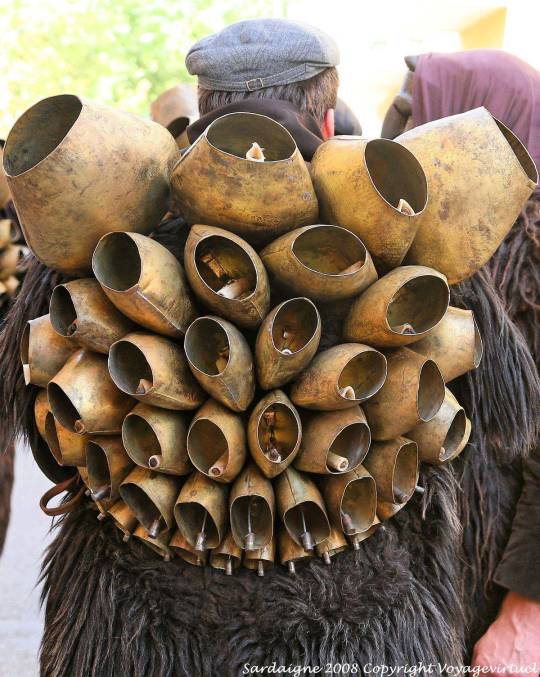
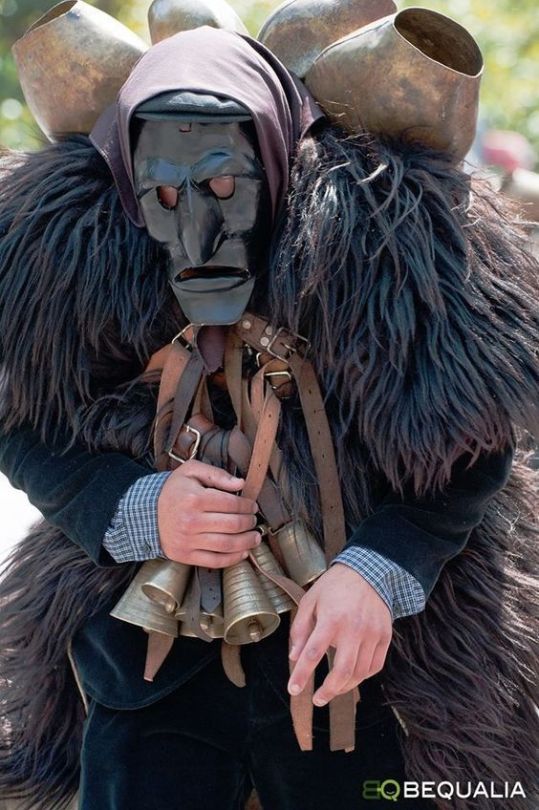
Italy, Sardinia
The character of Mamuthone reenacts ancient pre-Christian rites of propitiation to the ancient gods of agriculture. The mask is carved in pieces of wild pear wood, alder & walnut & darkened. The mask has become iconic of rural Sardinia.
2 notes
·
View notes
Text
Stamattina mio padre mi ha svegliato per dirmi che Alessandro de Santis dei santi francesi ha origini sarde ed ha tatuato sul braccio un mamuthone (come me).
Quindi ora io chiedo, dov'è la mia Matilda de Angelis?
Ps. Per me l'unico vero sardo in gara rimane Mahmood che mi porterà anche i tenores di Bitti sul palco di Sanremo
2 notes
·
View notes
Text
SAS TAPPAS in MAMUJADA
Mamuthones
Ossimoro
20 notes
·
View notes
Text
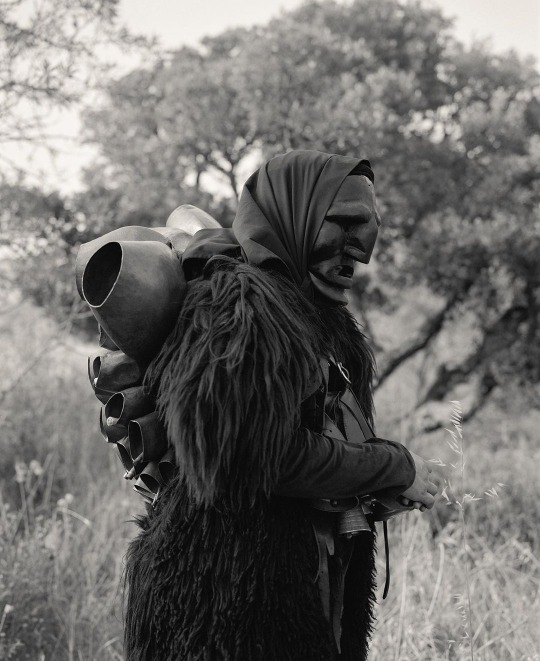
Alys Tomlinson | Mamuthones, Mamoida, Sardinia from the new photobook 'Gli Isolani' (The Islanders) published @gost_books | photobook, black and white photography
@alystomlinson
#art#photography#contemporaryphotography#blackandwhitephotography#photobook#folklore#gost_books#sardinia#alystomlinson
27 notes
·
View notes
Text
New Year's Day at the Ghurch
(related to this post)
Date: January first (January 1st)
Celebration: Of the new year
Description: At morning mass, Papa gives a sermon about the old year having come to an end and the new year beginning, and all the Ghurch's hopes and dreams for its flock and mission for this year.
Papa chooses twelve (12) people (usually regular Siblings) to dress as Mamoaida/Mamuthones and wear bells; the twelve people represent the months of the year, and the bells are meant to "ring" in the new year. The chosen twelve engage in a procession in the afternoon in the main hallway or the courtyard, and throw ropes around the parade watchers to "catch" them. Those who are "caught" engage in tarantella dancing with the Mamoaida/Mamuthones at the end of the parade.
Later, Papa gives an evening mass, basically to reiterate what he said during morning mass, and announces the celebratory party.
After evening mass, the party begins, and everyone drinks and dances all night.
1 note
·
View note
